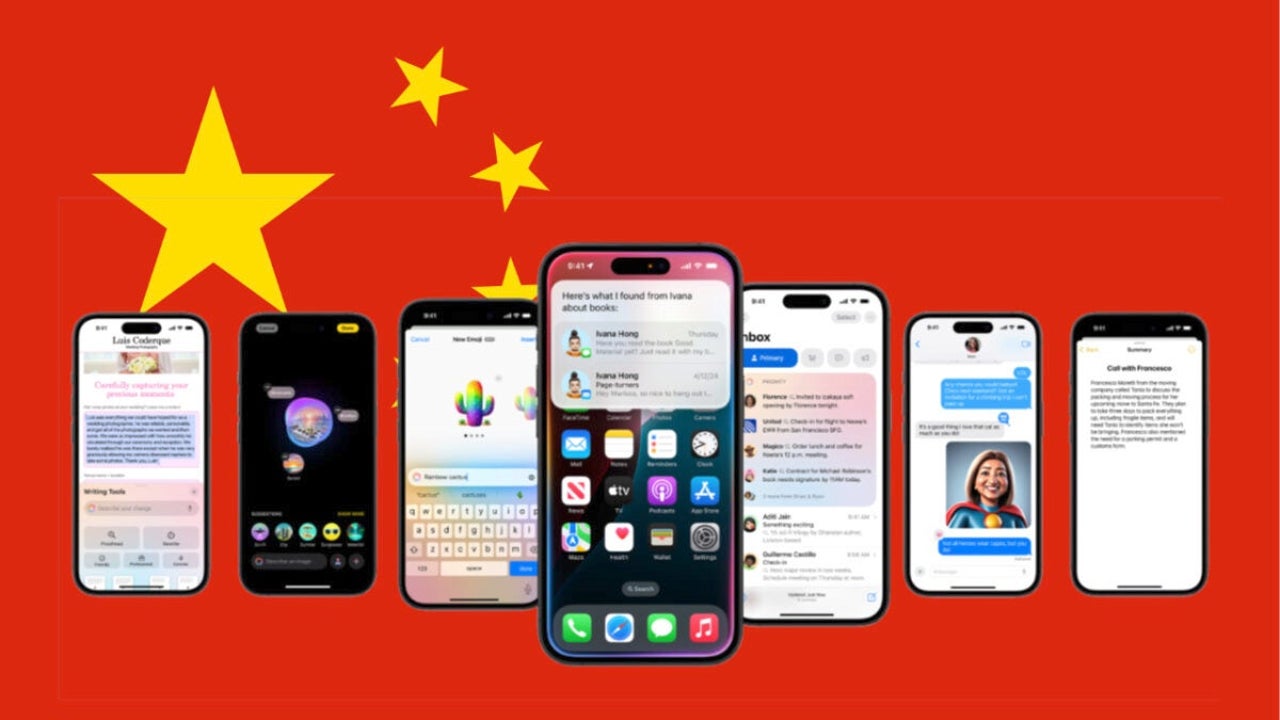China puts obstacles in the way of Apple Intelligence and the solution is unsurprising
A strategy that China has already implemented in the past

- November 27, 2024
- Updated: November 27, 2024 at 7:17 PM
The arrival of Apple Intelligence is being gradual. While it is available in practically the entire world, except Europe and China, it is only in English. We have the confirmed date for the arrival of more languages, and also the date it will be launched in Europe, but in China, the situation is different. According to the Financial Times, a senior official from the Beijing government has made it clear that any attempt by Apple to launch its artificial intelligence in the country will be a “difficult and long” path without collaboration with local companies. A situation that, although complex, has a solution that follows a pattern we have already become accustomed to in China.

Subscribe to the Softonic newsletter and get the latest in tech, gaming, entertainment and deals right in your inbox.
Subscribe (it's FREE) ►A crucial market with its own rules
According to current regulations, any foreign company that wants to operate with generative artificial intelligence models must go through an approval process. But here’s the key: this process is much more “simple and straightforward” if it partners with a local company. In practice, this means that Apple would have to collaborate with Chinese tech companies to offer its tools in the country.
We have seen similar situations before. In 2010, Google decided to leave China due to the restrictions and censorship it faced. And let’s not forget that platforms like Facebook, Wikipedia, or X are still blocked by China’s Great Firewall.
China also wants to strictly regulate the use of generative artificial intelligence models, as they can act as search engines that gather real-time information. For Apple, this situation implies the need to adapt if it wants to avoid the same rejections that other companies have already experienced when trying to expand in the country.
Apple’s strategy: Flexibility to move forward
Apple has already proven to be more than capable of adapting to the particularities of each market without compromising its essence. In this case, according to J.P. Morgan analysts cited in the Financial Times, it is most likely that Apple will opt for a “flexible” approach. This would involve collaborating with local Chinese companies to comply with regulations and launching Apple Intelligence in a version adapted to the country’s market.
What is clear is that these adjustments can significantly delay the launch of Apple Intelligence in China. According to estimates, Apple’s artificial intelligence would not be available in the country until the second half of 2025.
Ultimately, the solution to the obstacles imposed by the Chinese government is not surprising: Apple will have to collaborate with local companies to comply with regulations. A concession, yes, but also a demonstration of how the company prioritizes the continuity of its presence in one of the largest markets in the world, without losing sight of its main mission to offer products that make a difference for everyone and to do so while safeguarding our privacy.
The arrival of Apple Intelligence in China will be, as we are seeing, a long process full of challenges. But, as we have seen on previous occasions, if any company can successfully navigate situations like this, it is Apple.
Architect | Founder of hanaringo.com | Apple Technologies Trainer | Writer at Softonic and iDoo_tech, formerly at Applesfera
Latest from David Bernal Raspall
- SearchGPT is much easier to use on the iPhone thanks to new shortcuts
- The Apple security camera will be able to recognize us by our height and build without seeing our face
- The iPhone 17 Air has been leaked: extremely thin, redesigned cameras, and much more
- There will be no Wolfs 2: the director has withdrawn from the project following a decision by Apple
You may also like

SearchGPT is much easier to use on the iPhone thanks to new shortcuts
Read more

A complete bluff? The reviews for Moana 2 make it clear that the movie does not live up to the original
Read more

The most beloved killer on television has a new series—The trailer for Dexter: Original Sin has arrived
Read more

What will we find in season 2 of Squid Game? The new Netflix trailer makes it very clear
Read more

Enigmatic and ruthless: this is how the new John Krasinski series for Prime Video will be
Read more

The Apple security camera will be able to recognize us by our height and build without seeing our face
Read more